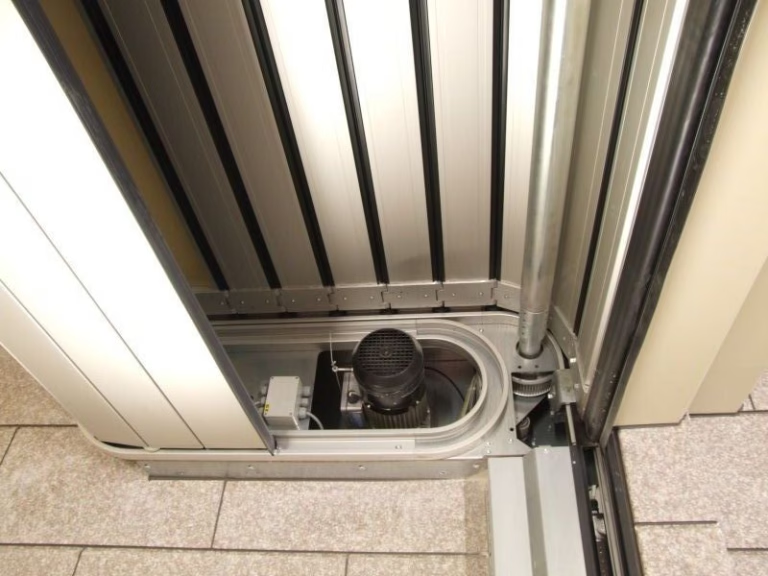commercial roll up doors
Commercial Roll Up Doors: A Comprehensive Guide
What Are Commercial Roll Up Doors?
Commercial roll up doors are overhead doors made from horizontal slats that roll into a coil above the opening. These doors are widely used in warehouses, retail stores, industrial facilities, and loading docks due to their space-saving design, durability, and security features.
Types of Commercial Roll Up Doors
1. Steel Roll Up Doors
Steel roll up doors are the most common type, offering high durability and security. They are ideal for warehouses, garages, and industrial settings.
- Pros: Strong, weather-resistant, low maintenance.
- Cons: Heavier than aluminum, may require reinforced tracks.
2. Aluminum Roll Up Doors
Aluminum doors are lightweight and corrosion-resistant, making them suitable for commercial spaces with frequent use.
- Pros: Rust-proof, easy to operate, cost-effective.
- Cons: Less impact-resistant than steel.
3. Insulated Roll Up Doors
These doors feature a polyurethane or polystyrene core, providing thermal efficiency for temperature-controlled environments.
- Pros: Energy-efficient, noise reduction, better insulation.
- Cons: Higher initial cost.
4. Fire-Rated Roll Up Doors
Designed to prevent the spread of fire, these doors are mandatory in certain commercial and industrial buildings.
- Pros: Meets fire safety codes, enhances building safety.
- Cons: Expensive, requires professional installation.
5. Security Roll Up Doors
Constructed with reinforced materials, these doors deter break-ins and vandalism.
- Pros: High-security features, tamper-resistant.
- Cons: More expensive than standard models.
6. High-Speed Roll Up Doors
Used in logistics and manufacturing, these doors open and close rapidly to maintain temperature control and efficiency.
- Pros: Reduces energy loss, improves workflow.
- Cons: Requires regular maintenance.
Key Features of Commercial Roll Up Doors
1. Durability & Strength
Commercial roll up doors are built to withstand heavy use, harsh weather, and potential impacts. Steel and aluminum variants offer long-term resilience.
2. Space Efficiency
Unlike traditional swing doors, roll up doors coil vertically, freeing up floor and wall space—ideal for tight commercial areas.
3. Security Enhancements
Many models include:
- Reinforced slats
- Locking mechanisms
- Tamper-resistant designs
4. Weather Resistance
- Wind-rated doors for hurricane-prone areas
- Weather seals to prevent drafts and moisture
5. Customization Options
- Color choices to match branding
- Window inserts for visibility
- Automation compatibility for hands-free operation
Benefits of Commercial Roll Up Doors
1. Improved Security
Roll up doors provide superior protection against forced entry compared to traditional doors.
2. Energy Efficiency
Insulated models help maintain internal temperatures, reducing HVAC costs.
3. Low Maintenance
Unlike sectional doors, roll up doors have fewer moving parts, requiring minimal upkeep.
4. Fast Operation
High-speed models improve workflow in busy commercial settings.
5. Versatility
Suitable for various industries, including:
- Warehousing
- Retail
- Automotive
- Food processing
Installation Considerations
1. Door Size & Opening Dimensions
Accurate measurements ensure proper fit and functionality.
2. Material Selection
Choose based on:
- Security needs
- Environmental conditions
- Budget
3. Motorization & Automation
- Chain-driven: Manual operation
- Electric motors: Remote-controlled access
4. Compliance with Building Codes
Ensure the door meets local fire, wind, and safety regulations.
Maintenance Tips for Longevity
1. Regular Inspections
Check for:
- Damaged slats
- Misaligned tracks
- Worn-out rollers
2. Lubrication
Apply silicone-based lubricant to moving parts every six months.
3. Cleaning
Remove debris from tracks and wipe down slats to prevent corrosion.
4. Professional Servicing
Schedule annual maintenance with certified technicians.
Cost Factors of Commercial Roll Up Doors
1. Material Costs
- Steel: $500–$2,500
- Aluminum: $400–$2,000
- Insulated: $1,000–$4,000
2. Installation Expenses
Labor costs range from $300–$1,500 depending on complexity.
3. Additional Features
- Automation: $500–$2,000
- Fire-rating: $1,500–$5,000
Top Brands & Manufacturers
1. Clopay
Known for durable, high-performance commercial doors.
2. Overhead Door Corporation
Offers a wide range of customizable roll up doors.
3. Rytec
Specializes in high-speed doors for industrial use.
4. Cornell Iron Works
Provides heavy-duty security and fire-rated doors.
5. Hormann
European-engineered doors with advanced automation.
Common Applications
1. Warehouses & Distribution Centers
High-speed doors improve loading efficiency.
2. Retail Stores
Secure storefronts after hours.
3. Automotive Garages
Durable doors withstand frequent use.
4. Food & Beverage Facilities
Insulated doors maintain temperature control.
5. Aircraft Hangars
Large roll up doors accommodate aircraft storage.
Future Trends in Commercial Roll Up Doors
1. Smart Door Technology
Integration with IoT for remote monitoring.
2. Sustainable Materials
Eco-friendly, recyclable door components.
3. Enhanced Automation
AI-driven sensors for predictive maintenance.
4. Improved Insulation
Advanced materials for better energy savings.
Final Buying Tips
- Assess security needs before purchasing.
- Compare warranties from different manufacturers.
- Consult a professional for installation.
- Prioritize energy efficiency in climate-controlled spaces.
This guide covers everything you need to know about commercial roll up doors, from types and features to installation and maintenance. Whether for security, efficiency, or durability, these doors are a smart investment for any business.

